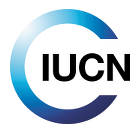Analysis of the temporal and spatial variability of whale shark ( Rhincodon typus ) aggregation in the South Ari Marine Protected Area, Maldives, Indian Ocean
Whale sharks are known to aggregate in coastal areas. In the South Ari Marine Protected Area (Maldives) a aggregation, mostly represented by young males with a high level of residency, has been described in the literature. Despite the worldwide interest in the natural resources of the Maldives, this population is increasingly subjected to anthropogenic pressure […]

